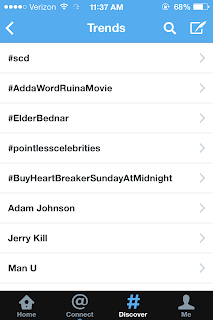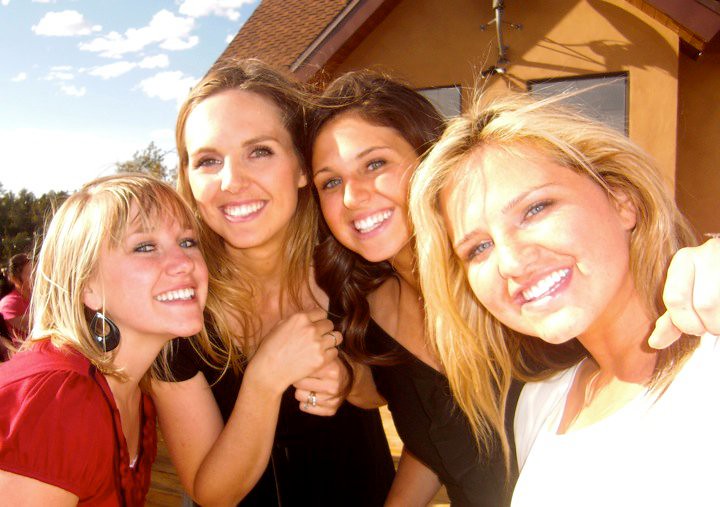Apparently this was one of the most influential books of 2008. I am hopeful that means that this book will be an interesting read.
Preview:
From previewing the text, I can see that Randall Circle High School is important-- most likely as a type of case study. Also, the text seems to focus on how to meet each student's individual needs rather than just helping the "average" student. The conclusion Christensen seems to be working towards is how to give schools the tools they need in order to help students succeed.
Social Proof:
Everybody on Google Plus seemed more interested in the fact that I got my book for free through the library than that I am researching innovation in education. However, I wandered into the kitchen to talk to two of my roommates about technology and education, and they both seemed reasonably interested. One of my roommates is a Computer Science major, so she thinks technology is great. My other roommate is an English major. She and I both agree that technology is good when it adds directly to what we're learning about, but we've both seen it overused in our classes. I felt good that my fellow English major roommate agreed with me, and I understand why my other roommate thinks technology in classes is so important. I am interested to see what Clayton Christensen has to say on the matter.
Similar Books:
The Innovative University: Changing the DNA of Higher Education from the Inside Out showed up in both of my searches. This book, as well as several others that showed up in my search were also written by Clayton Christensen, so it appears that he is very invested in this subject. Most of the results were either directly related to improving education in the United States or to Innovation, which was interesting. However, it makes sense given the title of the book I'm looking at.
Social Context:
A quick Youtube search brought up a TED talk by Michael B. Horn. I searched his name and discovered that he co-authored Disrupting Class, which I had somehow missed when I was glancing at my book. When I searched Twitter, I found a lot of entertaining tweets from students who had actually disrupted class. However, I also discovered that Disrupting Class was mentioned in a conference called Excellence in Education. Neat!
Formal Reviews:
I found a formal review by John Sener that was published in
elearn Magazine. Sener disagrees with most of the arguments in Disrupting Class. He points out the fact that education is actually quite different from businesses, therefore we need to be cautious when trying to apply ideas from business to education. I found this quote to be a good representation of Sener's argument: "The problem is the solution that's proposed supports customized inputs, but standardized results." I will definitely keep this in mind as I start reading Disrupting Class itself.
Informal Reviews:
Disrupting Class has an average rating of 3.86 on Goodreads. One criticism that I have seen popping up inn both formal and informal reviews is that the authors propose charter schools as the solution to all of our education woes. Other reviewers complain that the authors ignore several existing models that use technology to help students learn based on their individual needs (such as Montessori schools.) Overall, I'm getting the impression that there are good ideas in this book, but I will need to read it with a grain of salt.
Courses Using This Book:
A search of educational sites using this book showed me that Michael B. Horn
visited MIT as a guest lecturer and spoke about some of the ideas from their book. Michael Horn keeps showing up. I think it will be important to pay attention to all of the authors, not just Christensen. I also found that VCU (Virginia Commonweatlth University) has
an entire blog devoted to this book, complete with notes and questions asked by the instructors for students to keep in mind as they read the book. I think this website could be very helpful to me as I look at this book more in depth later.
Multimedia:
I searched Youtube earlier and found that Michael B. Horn had given a TED talk based on the ideas from this book. A search of Flickr revealed that the third author, Curtis W. Johnson, spoke at the global education forum in 2010. It appears that all three of the authors of this book are very involved in organizations that have the influence to change the way that education works. That in and of itself is enough to make me want to pay close attention to this book to see what ideas are being spread in these influential places.
First Impressions of the Book:
I enjoyed chapter 9:"Giving Schools the Right Structure to Innovate." The authors talk about how businesses use functional teams that focus on one aspect of the business, and suggest that schools could do something similar with students-- for example, perhaps having one group focus on music or art. I think that is a good idea, but I also think that traditional skills that we learn at school are useful and shouldn't be overlooked. I also think that students could be missing out on many opportunities to learn by focusing too much on one area and neglecting the others. I believe that by following the functional teams model, we would risk pigeon-holing students into focusing on only one of their talents. This would risk not giving them opportunities to grow as balanced individuals. Perhaps a cross-functional team model would be more effective. Students could be put into small groups, which would include students with different skill sets. That way, students would be exposed to other models of thinking and learning. They would also be able to feel that they can make a valuable contribution, whatever their skill set, because everyone's skills would be viewed as equally valid. Additionally, they would be given opportunities to use all of their unique talents, not just the one labelled skill, such as art. I intend to look more in depth at the model proposed in this book and see what points they make that could be used as a springboard to develop alternate methods of education.











.PNG)








